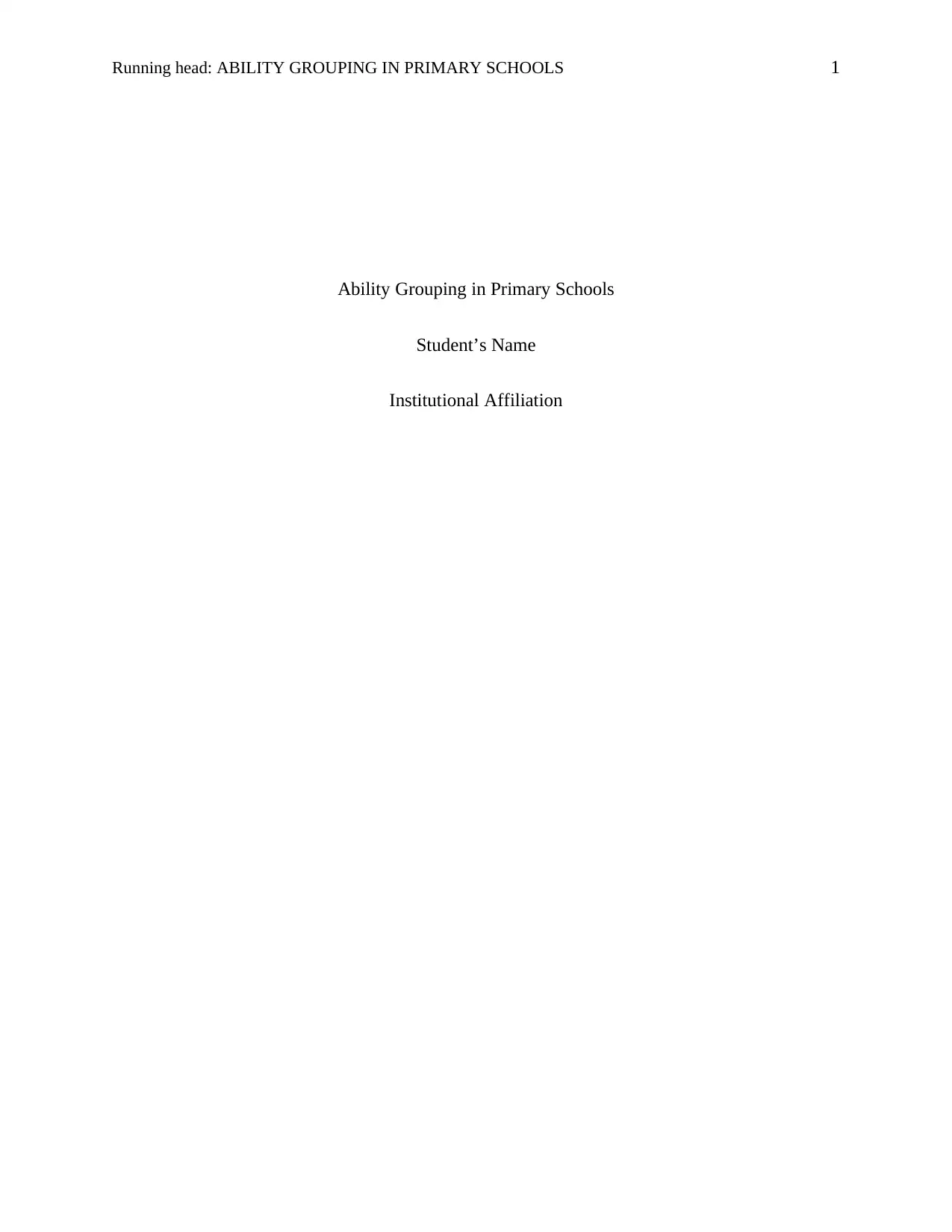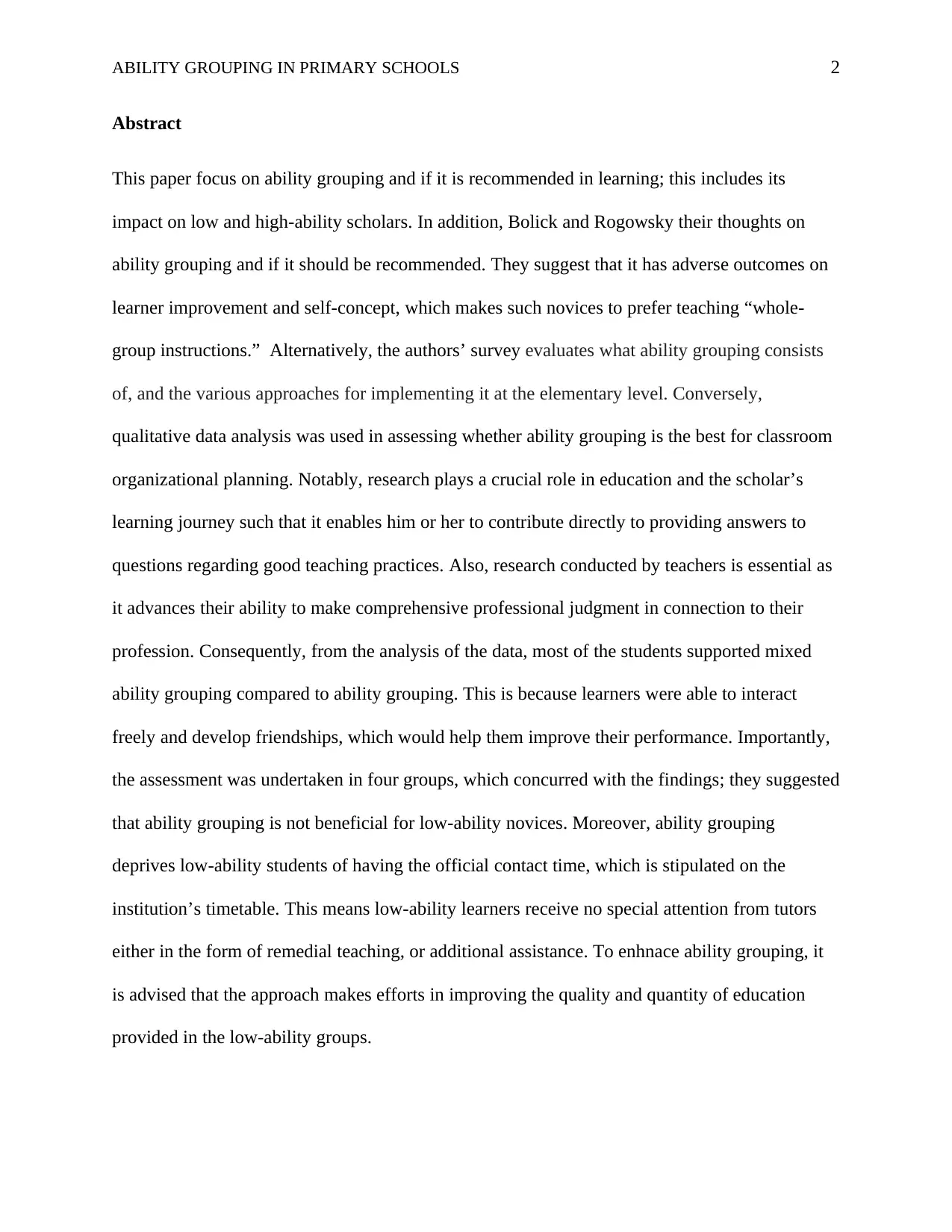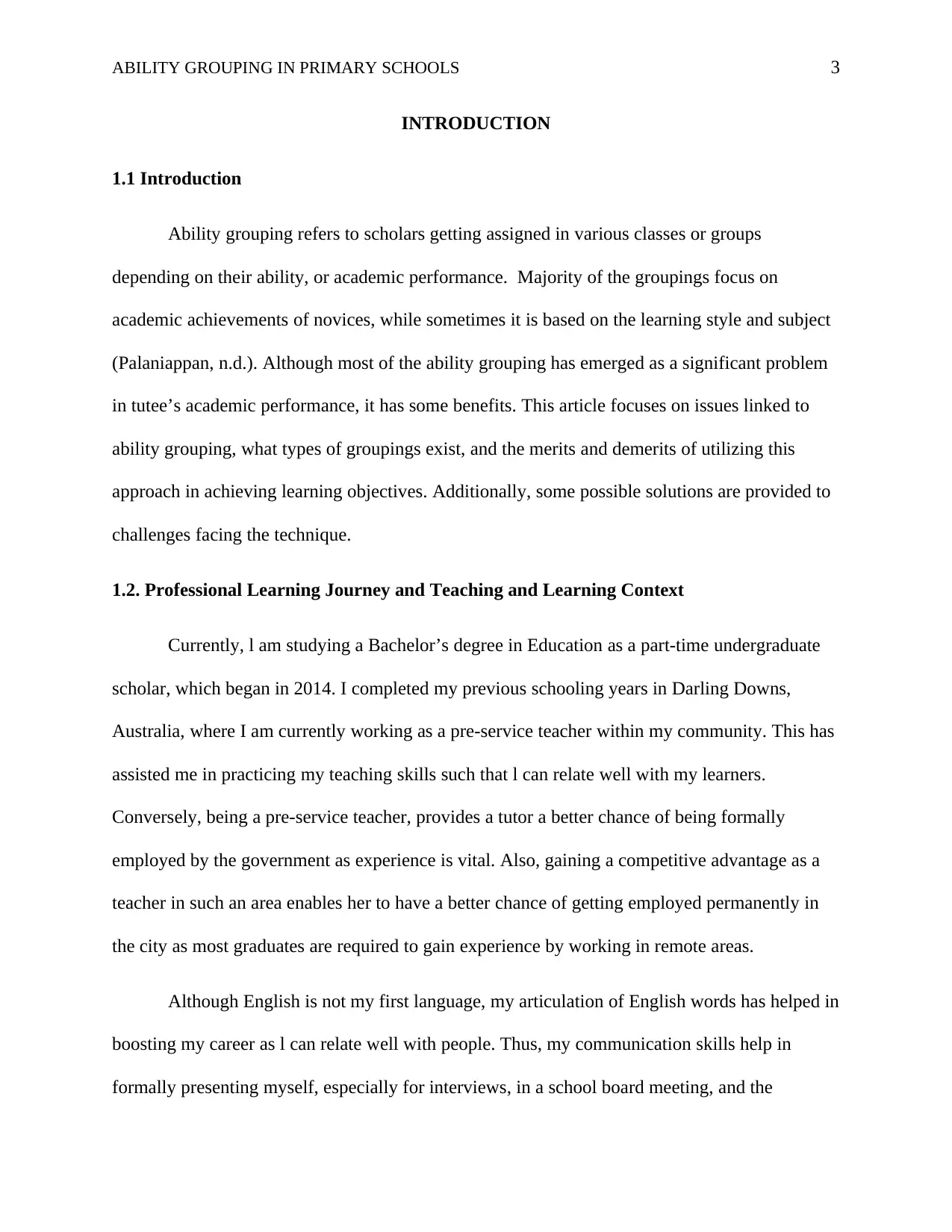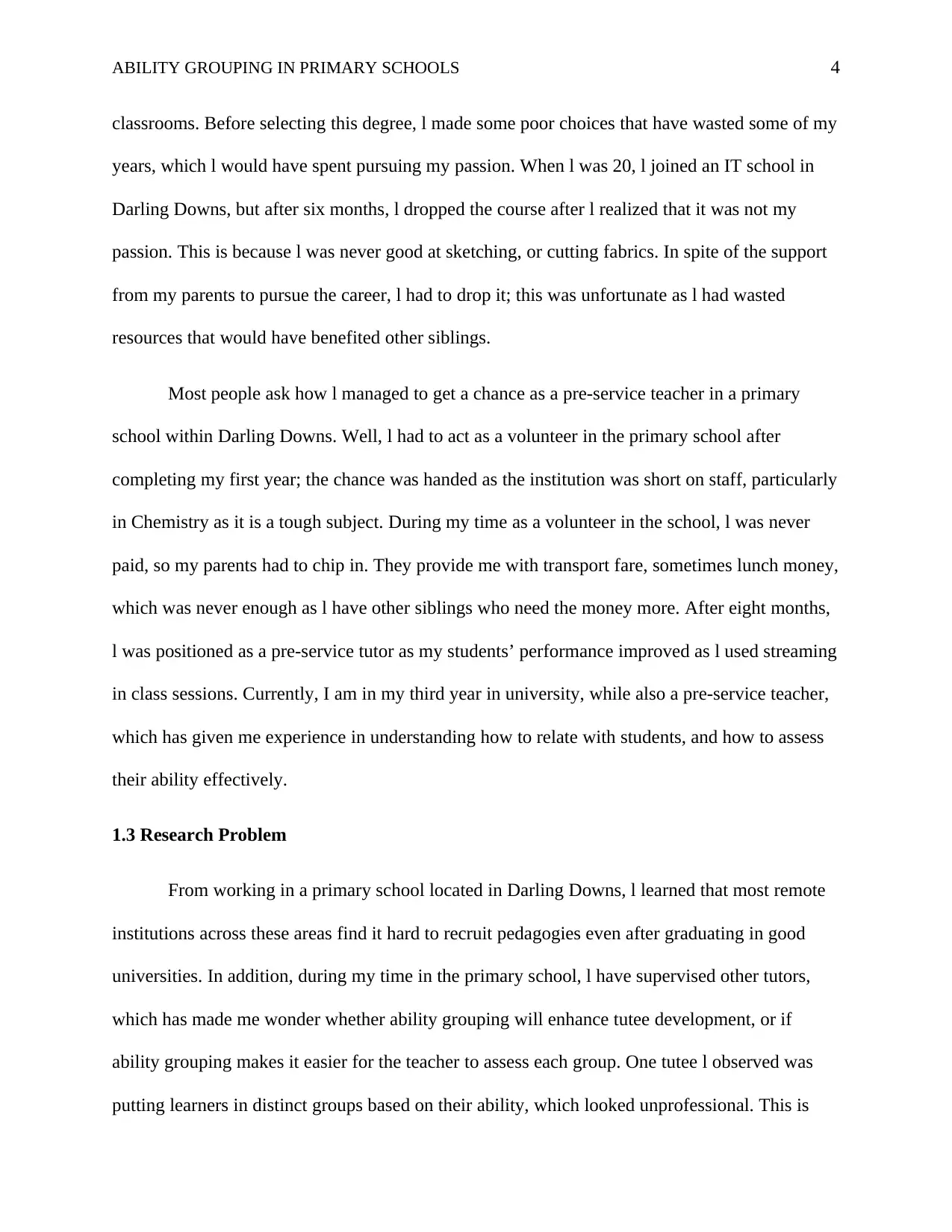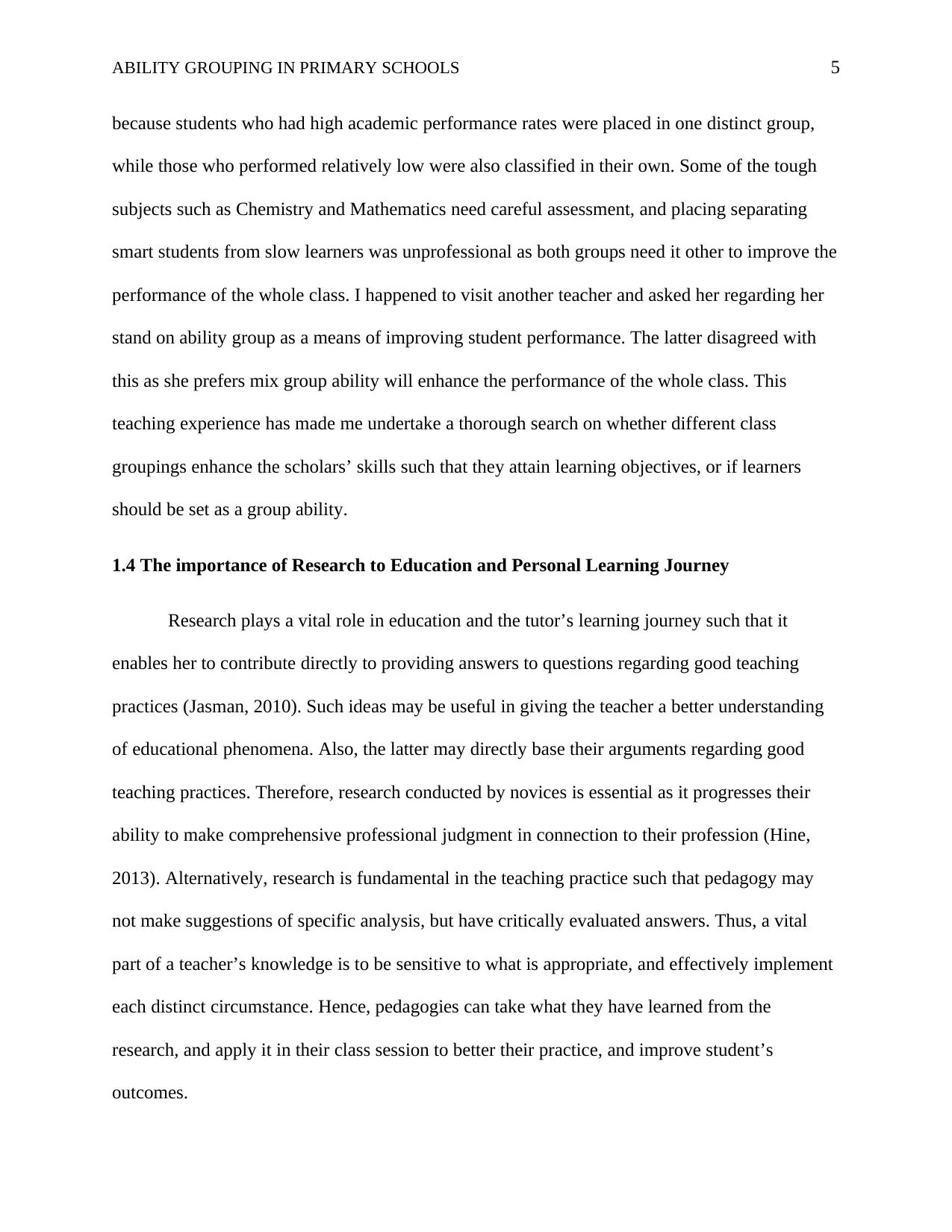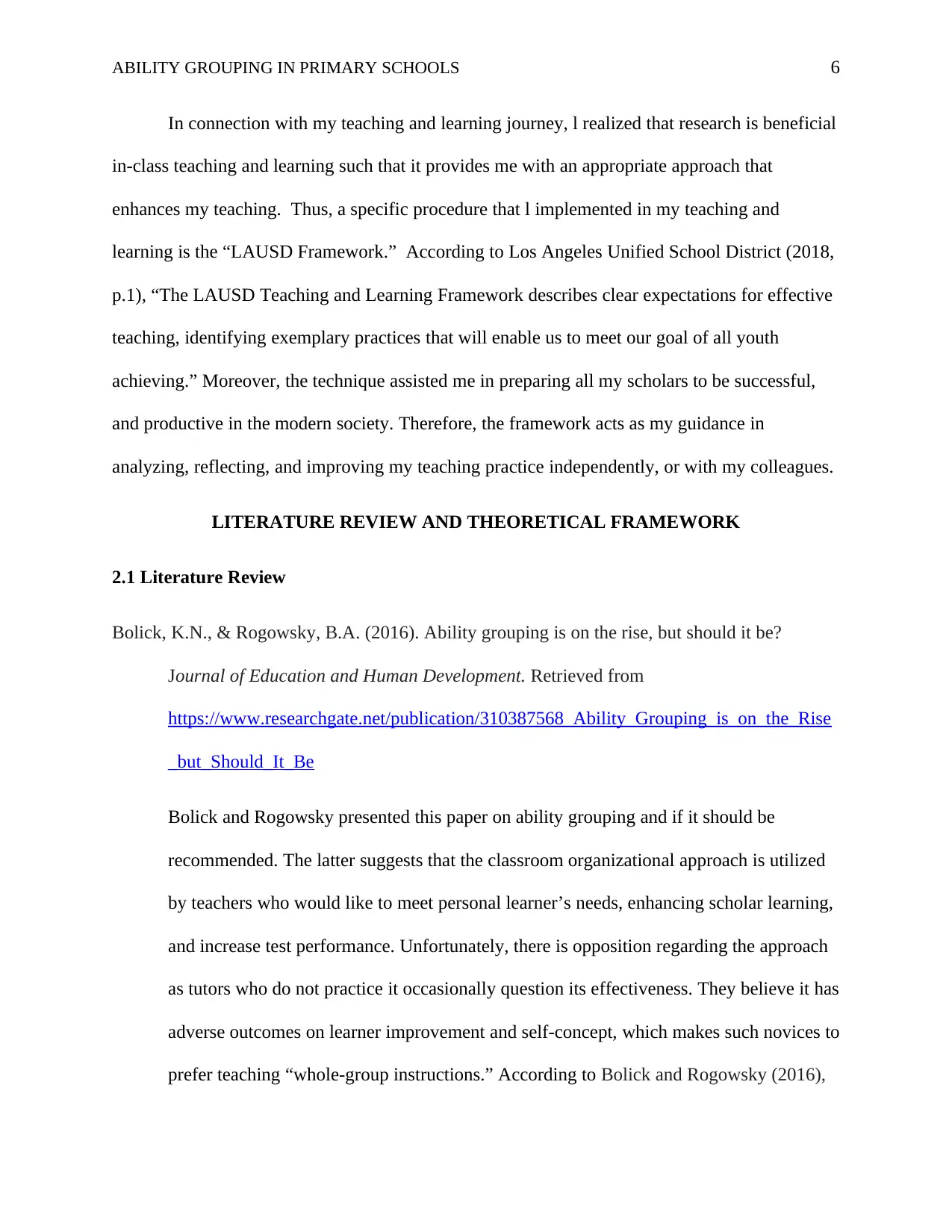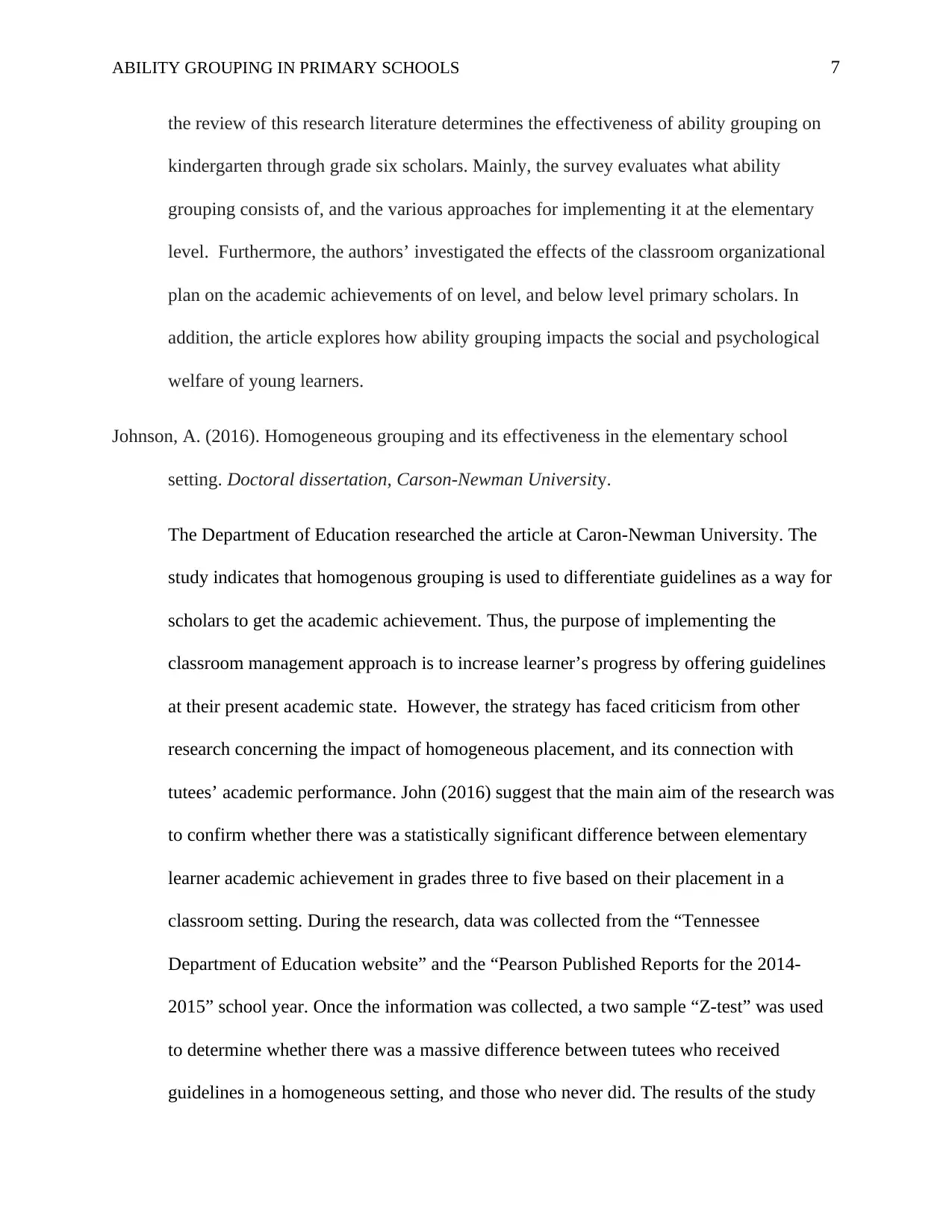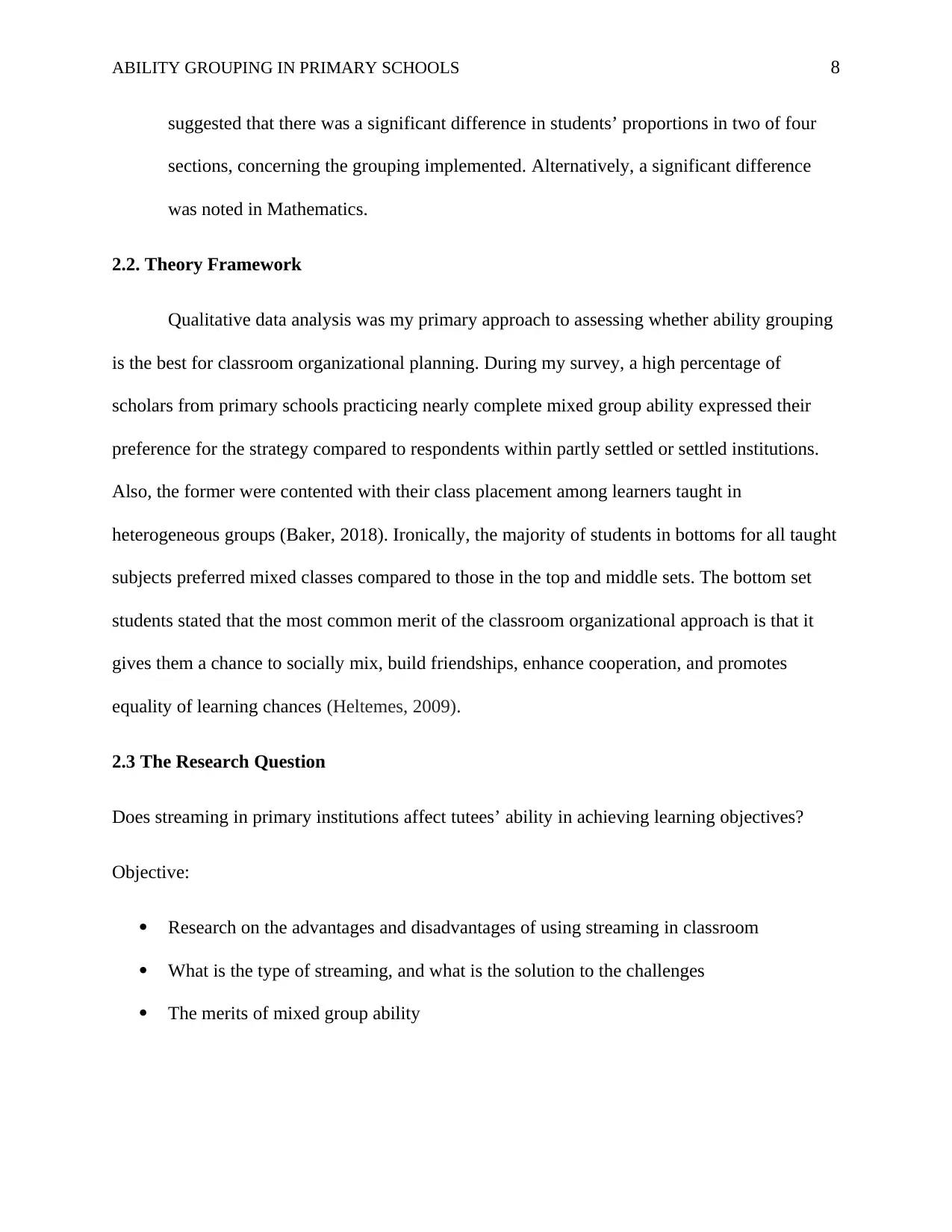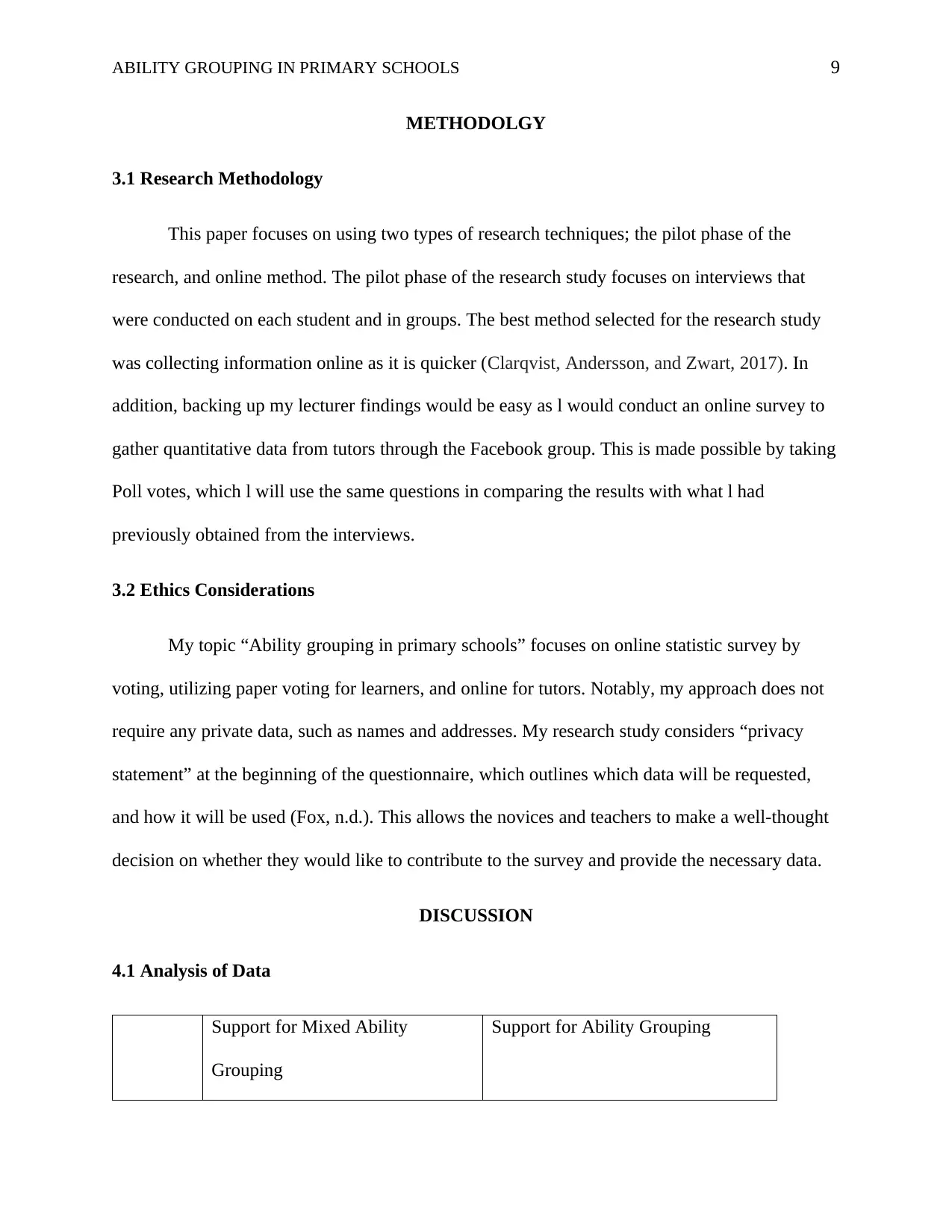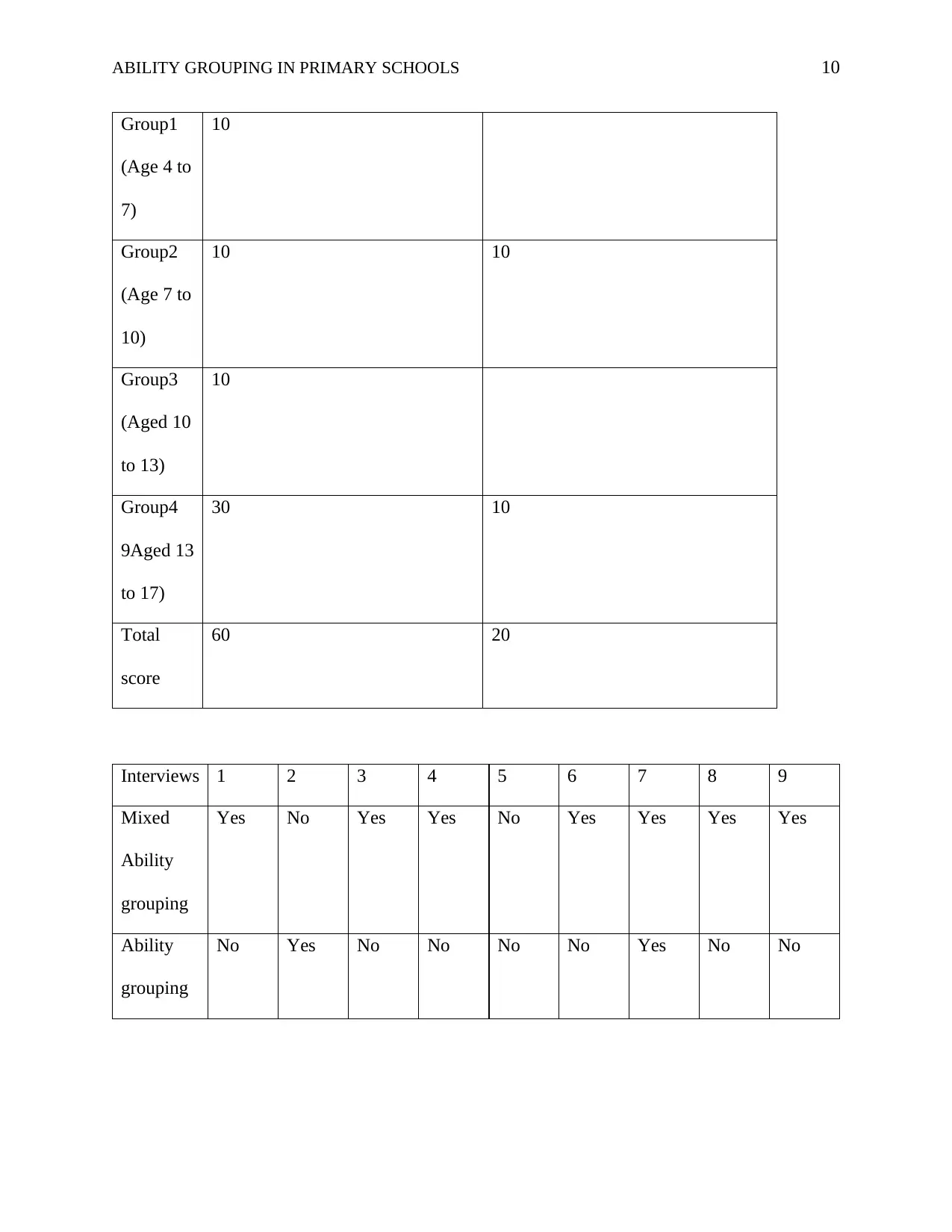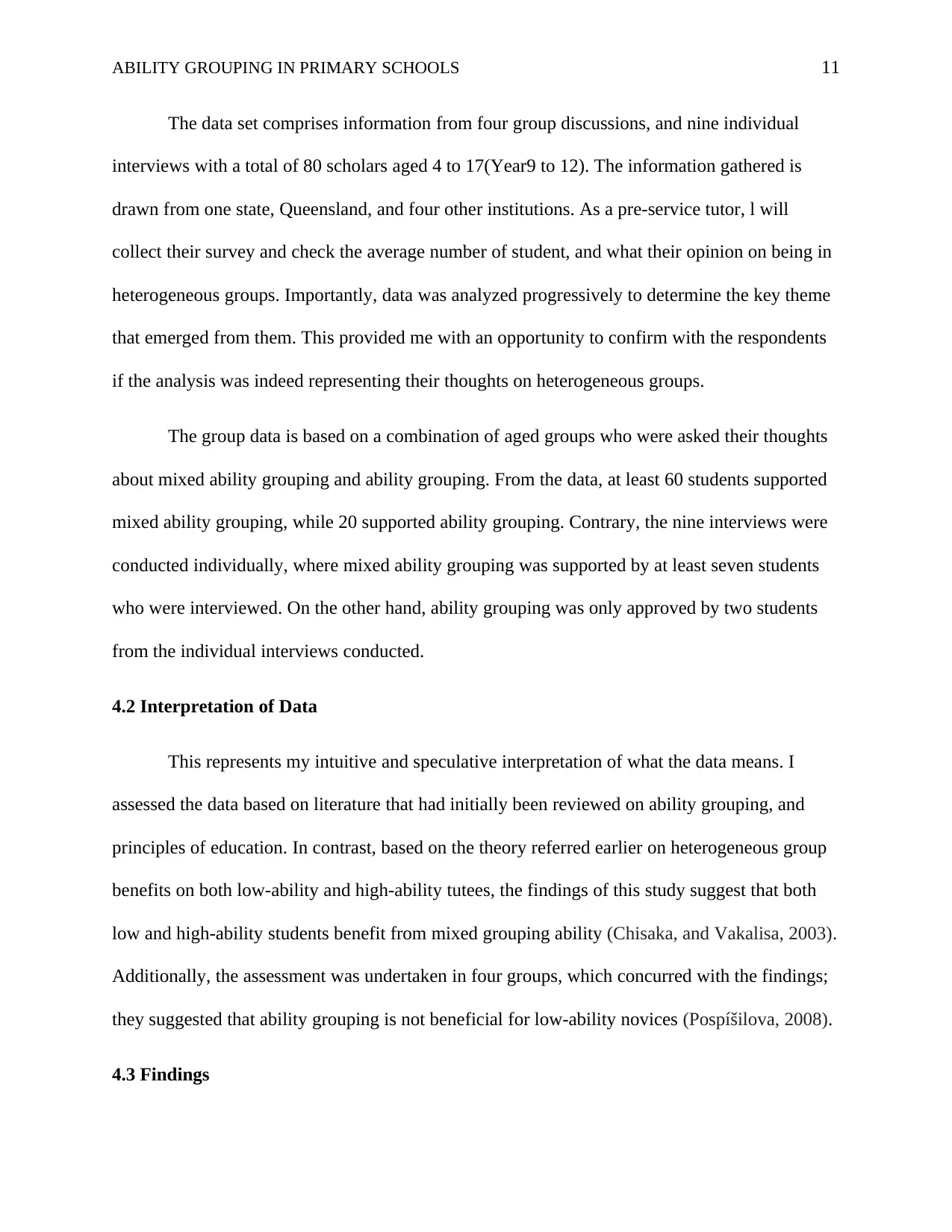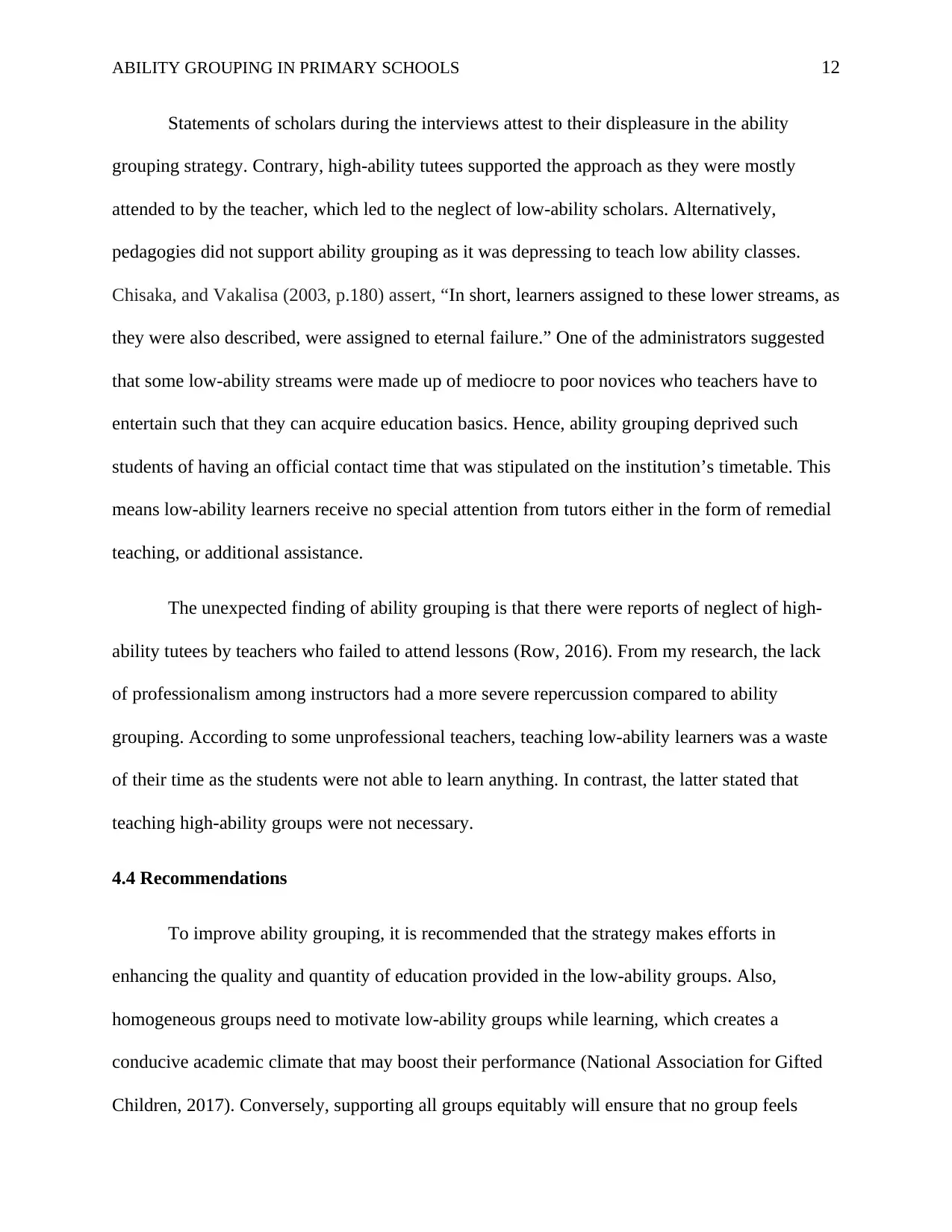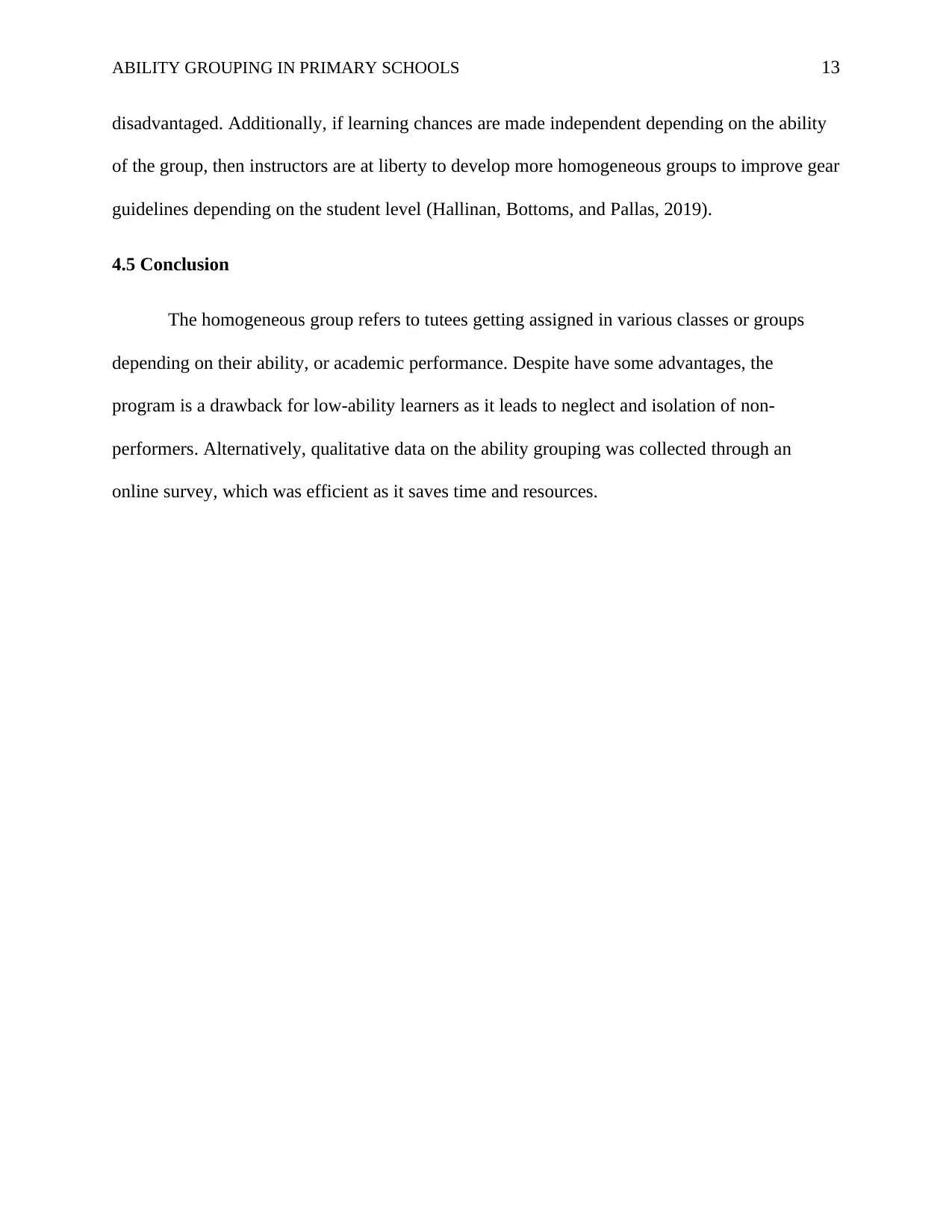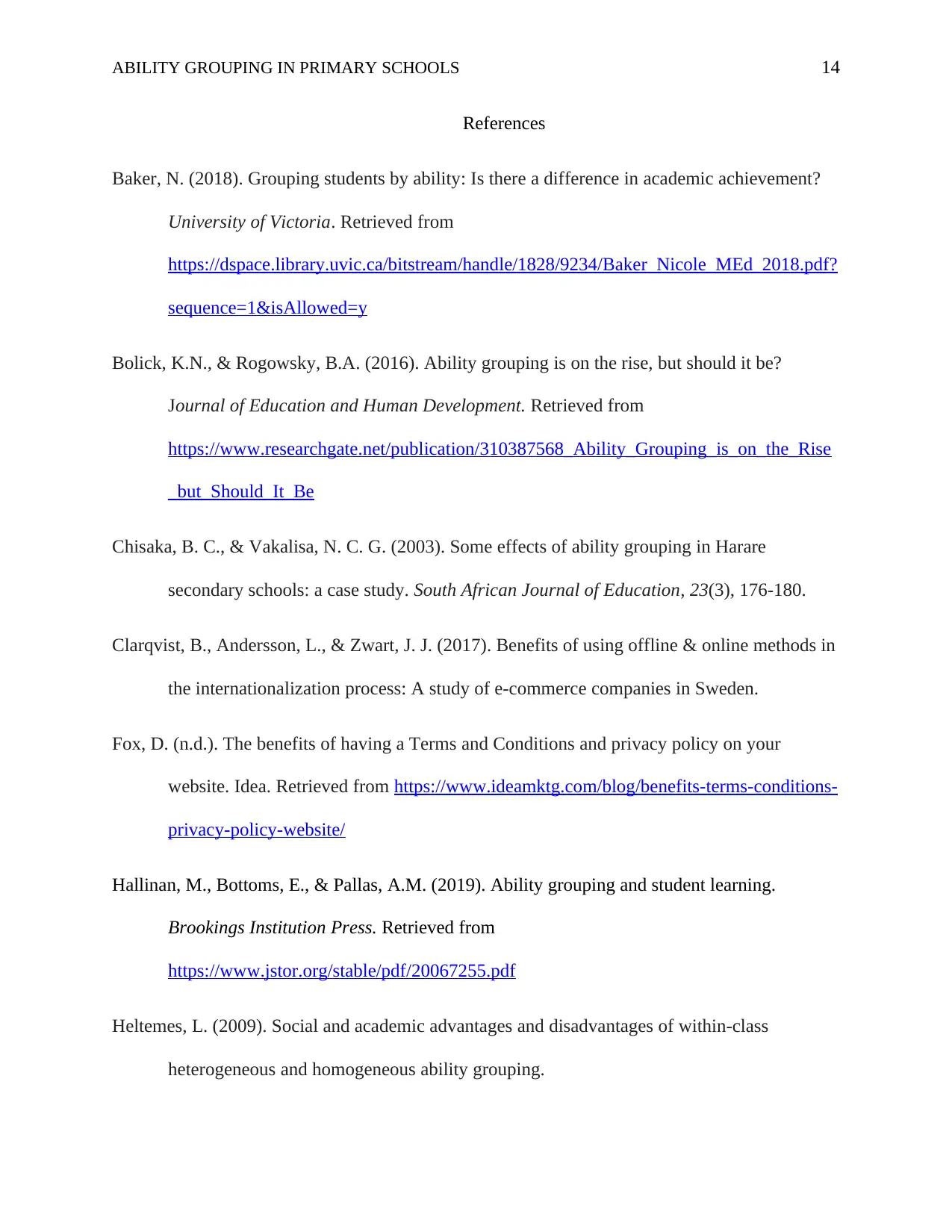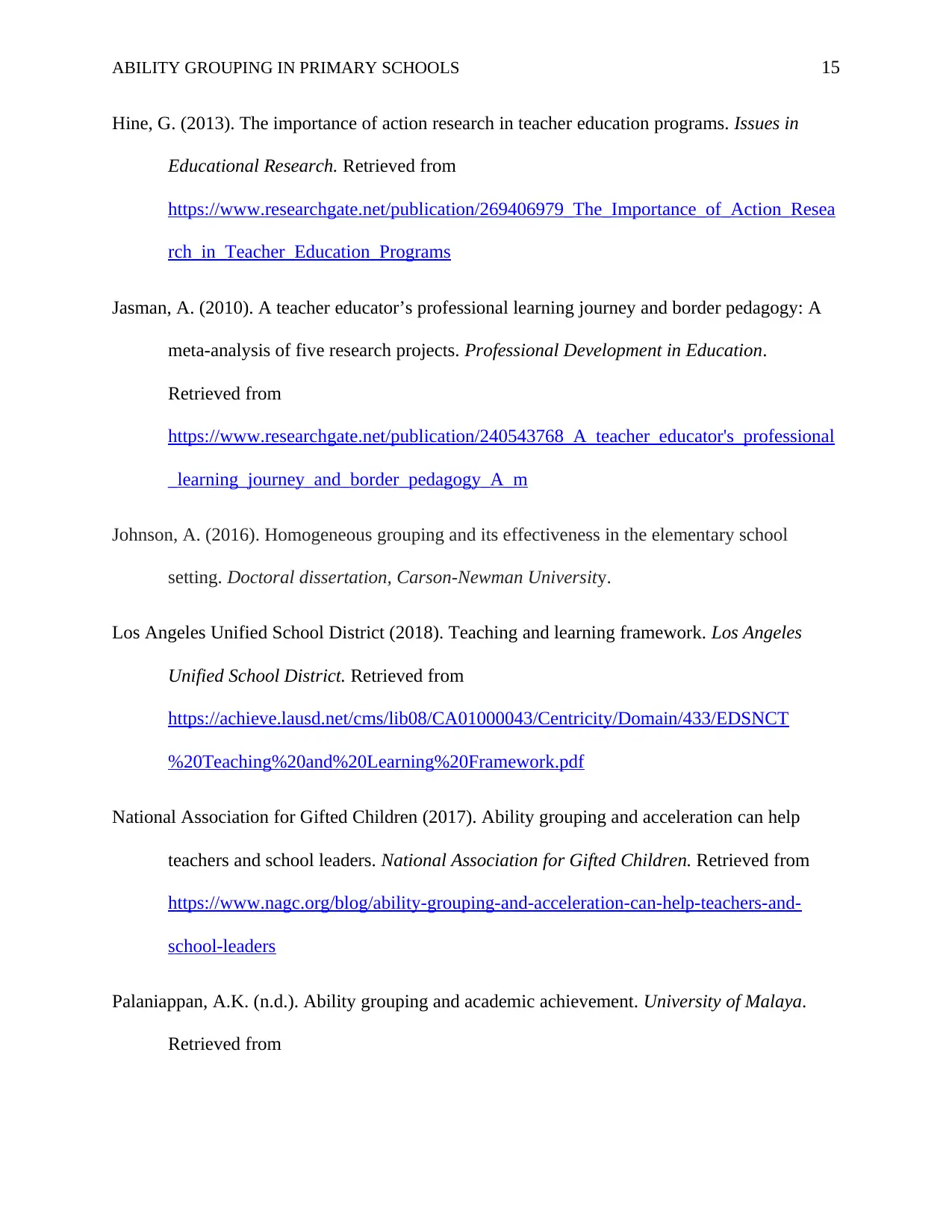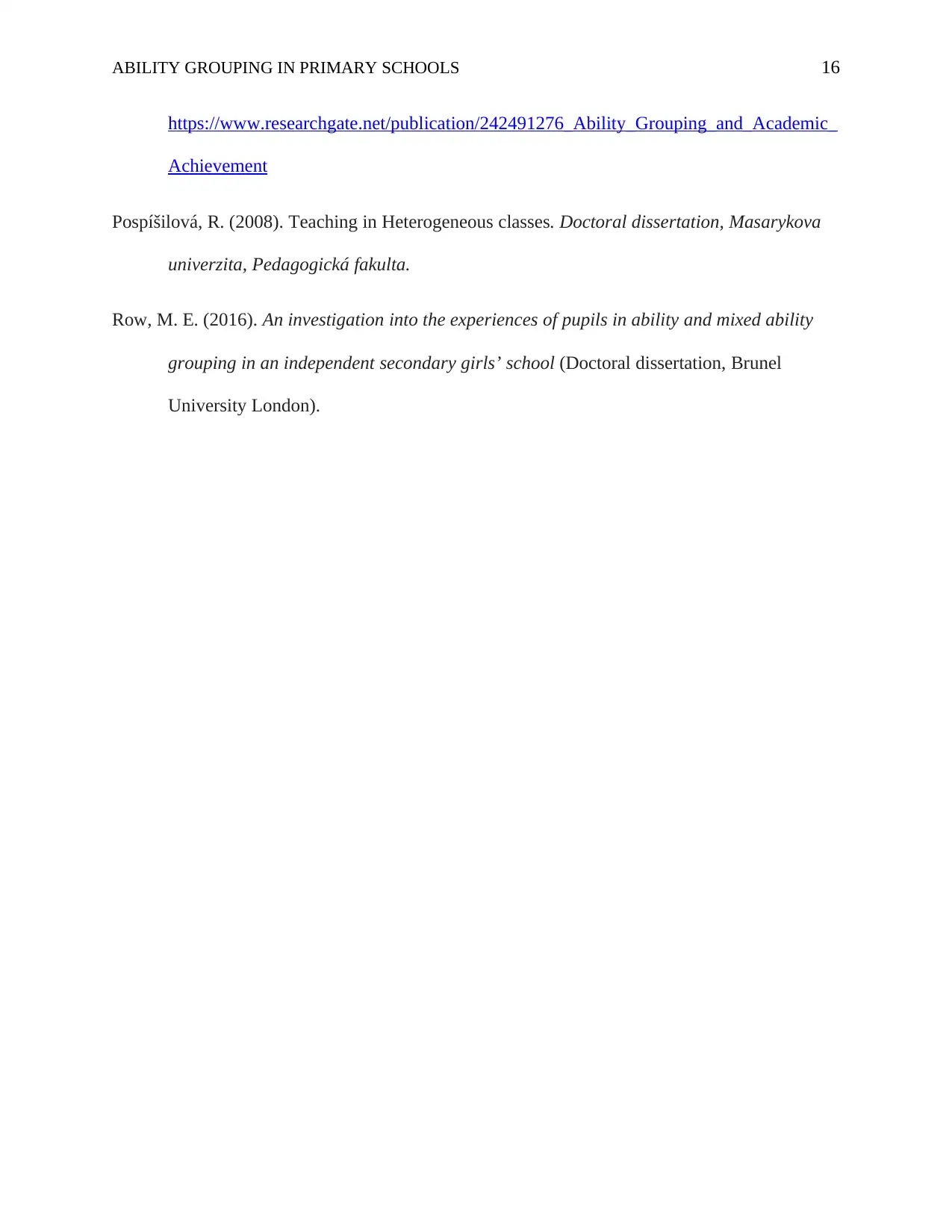This paper focuses on ability grouping and if it is recommended in learning; this includes its impact on low and high-ability scholars. In addition, Bolick and Rogowsky their thoughts on ability grouping and if it should be recommended. They suggest that it has adverse outcomes on learner improvement and self-concept, which makes such novices to prefer teaching “whole-group instructions.” Alternatively, the authors’ survey evaluates what ability grouping consists of, and the various approaches for implementing it at the elementary level. Conversely, qualitative data analysis was used in assessing whether ability grouping is the best for classroom organizational planning. Notably, research plays a crucial role in education and the scholar’s learning journey such that it enables him or her to contribute directly to providing answers to questions regarding good teaching practices. Also, research conducted by teachers is essential as it advances their ability to make comprehensive professional judgment in connection to their profession. Consequently, from the analysis of the data, most of the students supported mixed ability grouping compared to ability grouping. This is because learners were able to interact freely and develop friendships, which would help them improve their performance. Importantly, the assessment was undertaken in four groups, which concurred with the findings; they suggested that ability grouping is not beneficial for low-ability novices. Moreover, ability grouping deprives low-ability students of having the official contact time, which is stipulated on the institution’s timetable. This means low-ability learners receive no special attention from tutors either in the form of remedial teaching, or additional assistance. To enhance ability grouping, it is advised that the approach makes efforts in improving the quality and quantity of education provided in the low-ability groups.
![[object Object]](/_next/static/media/star-bottom.7253800d.svg)
![[object Object]](/_next/static/media/star-bottom.7253800d.svg)
